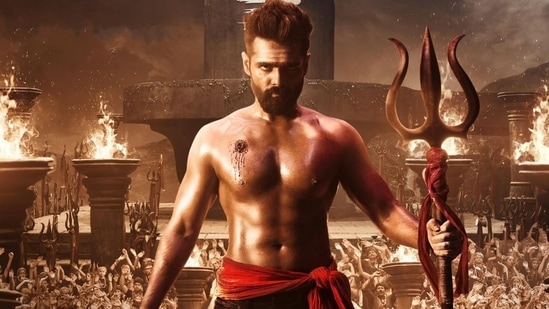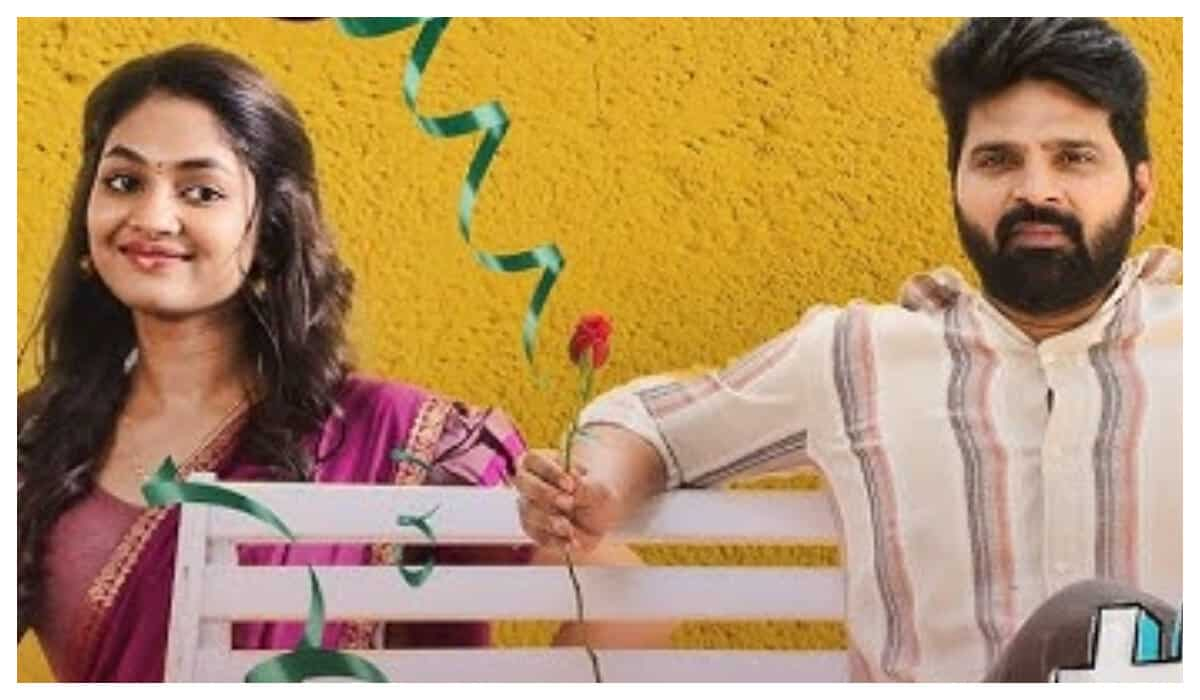
Double iSmart review: Ram Pothineni, Puri Jagannadh's film is ‘double’ annoying
8 months ago | 141 Views
Double iSmart review: Some films require sequels to explore a character or further the story, and some sequels exist just as cash grabs. Puri Jagannadh tries (quite lazily) to convince you Double iSmart is the former. There’s a previously nonexistent mother for whom he seeks vengeance from a previously nonexistent foe. But over a duration of 2 hours and 42 minutes, Puri tests your patience, attempts to make you laugh with some disgusting comedy, and gives you an existential crisis while at it.
Double iSmart story
iSmart Shankar (Ram Pothineni) is back to being a goon after the events of iSmart Shankar (2019). Guess he’s done helping the CBI. He’s back to looting money and harassing women like Jannat (Kavya Thapar), whom he has just met. Big Bull (Sanjay Dutt) is your run-of-the-mill gangster who’s into smuggling weapons and drugs. When he receives shocking news, he decides to ‘transfer his memories’ into another person to be immortal. A scientist called Thomas (Makarand Deshpande) suggests using Shankar as his pawn, given that he has gone through this already.
Double iSmart review
If the plot of Double iSmart sounds awfully familiar to you, it’s because Puri decided to make the same film twice, hoping nobody would notice. Shankar’s rough edges are softened this time - he’s not as abrasive as he used to be. He compares Jannat to paala kova (milk peda) and forcibly kisses her only once, as opposed to the rape threats Chandini (Nabha Natesh) had to go through in the previous film. In Puri’s eyes, maybe that’s a win. Unfortunately, to make up for the lack of misogyny from Shankar, we’re introduced to a tribal man called Boka (Ali).
Puri’s comedic timing remains problematic
A solid chunk of the film is allocated to a man called Boka - the most offensive portrayal of a tribal on-screen. He hoots like a monkey, is supposedly always looking for women to have sex with and is carrying around an object in the shape of male genitalia. The portions involving him must be some of the worst Puri has ever envisioned. These scenes neither make you laugh nor add to the overall narrative, they only serve to make you wonder when this onslaught on your senses will stop. To make matters worse, women in the film are mistreated for gags, ie when Jannat is not being relegated to being the male fantasy.
Is this really a sequel?
Double iSmart plays in such a way that you wonder if it’s taking place in some alternate universe. There’s no mention of anyone who exists in the previous film, including Arun (Satyadev), whose memories were briefly possessed by Shankar. And where’s Dr Sarah (Nidhhi Agerwal) to whom Shankar proposed at the first film's end? Yeah, Shankar’s brain has been through a lot, but indeed, Puri could’ve done a better job at connecting the first film to the sequel. Only Chandrakanth (Sayaji Shinde) and Shankar’s friend (Getup Srinu) get to return to the chaos. Shankar is also given a sob backstory you’re suddenly supposed to care about because it involves Pochamma (his mom, Jhansi).
The unintentionally funny scenes
There are scenes in the film where Mani Sharma’s music cues you to feel emotional or empathetic about what’s happening on screen, but all it does is make you laugh. In a scene that’s supposed to make us fear Big Bull, his sidekick Bentley (Bani J) screams, “Aye tera Kung Fu wung fu nahi chalega. Big Bull tera phod dalega saale (Your Kung Fu won’t help you against Big Bull),” doesn’t help. In another scene, Thomas explains that he’s only ‘copy-pasting’ the memory, not ‘cut-pasting’. And when Big Bull tells Jannat, “Osey nee boyfriend naa khompa munchedu (Your boyfriend has made my life difficult),” you give up on any semblance of sense.
In conclusion
iSmart Shankar was no masterpiece, but Shankar’s love for Chandini and his desperation to remember her was somewhat understandable. It feels lazy and contrived in a sequel that doesn’t even acknowledge her and yet tries to recreate the same tropes. In hindsight, Puri could’ve benefitted from showing the story to Vijayendra Prasad when he asked for it, apart from catching up to where cinema is in 2024. When you’re almost at the fag end of the film, a character screams in frustration, “Maku opikalu asalu levu ra (We don’t have any patience left in us),” and it’s exactly how you feel leaving the theatre.
Read Also: Thangalaan review: Vikram delivers a spellbinding performance in this Pa Ranjith film #




















